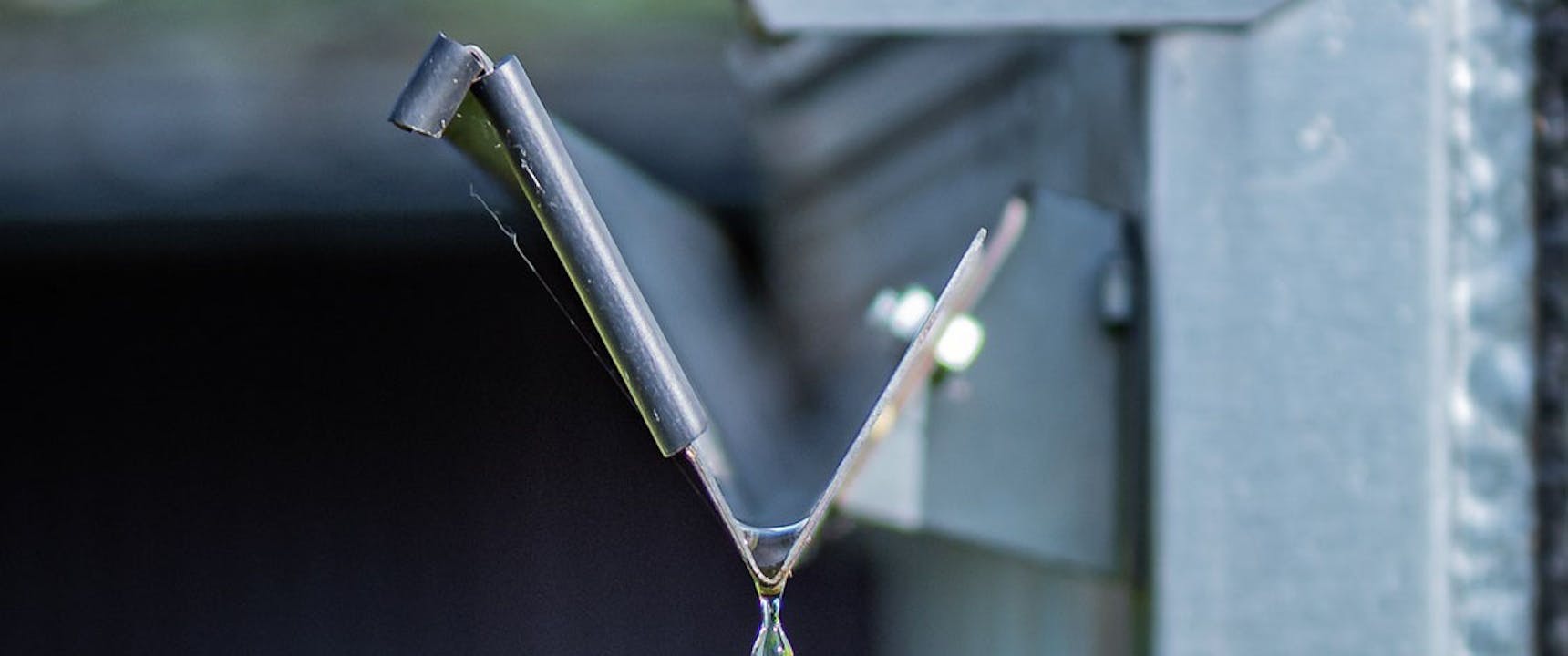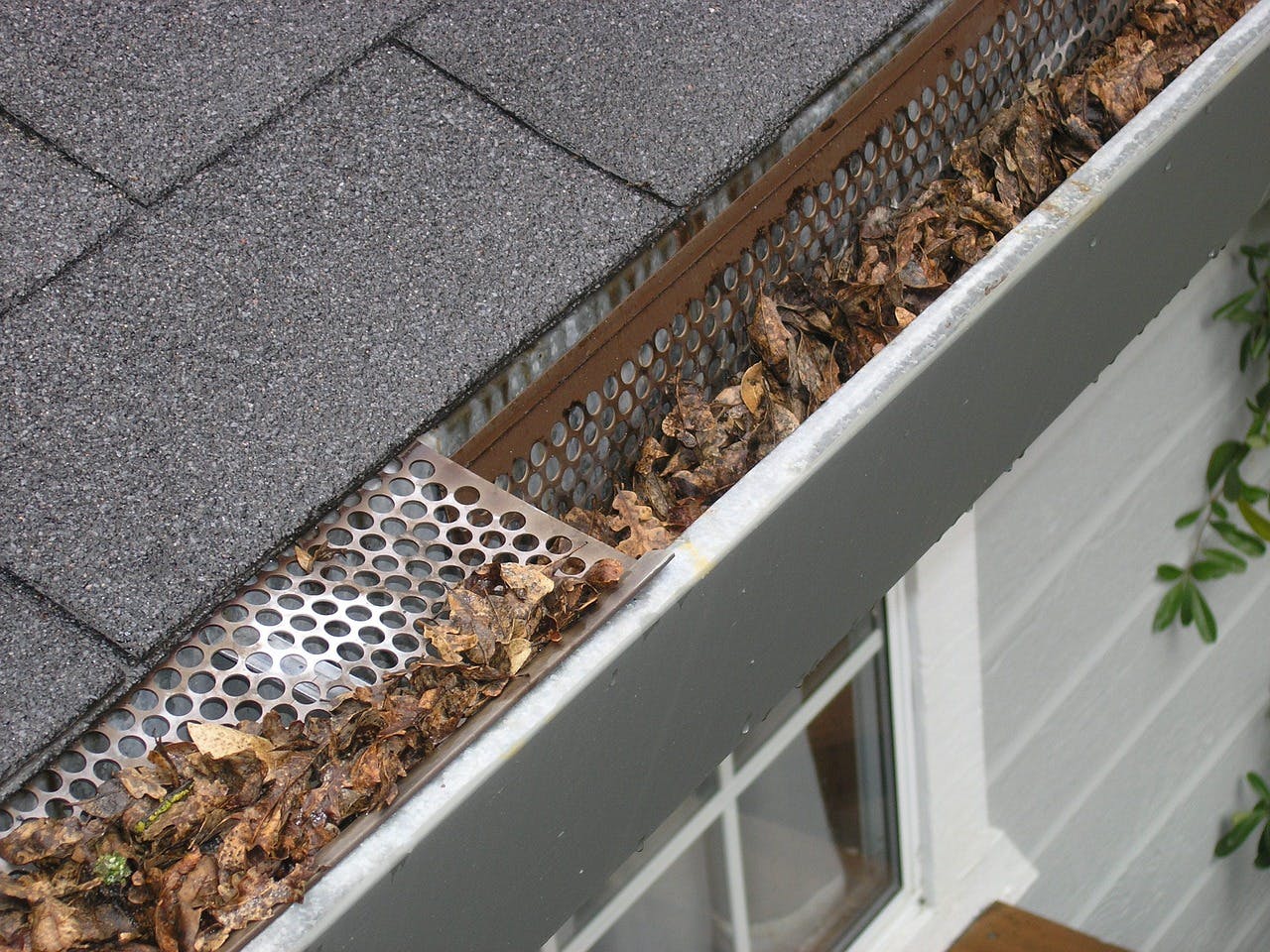Cleaning and Maintaining Gutters
By
Storm Guard

How to Clean and Maintain Gutters for a Functional Home
Gutters are an essential part of any home's roofing system. They help to direct rainwater away from the house, preventing damage to the roof, walls, and even the foundation. When gutters become clogged with debris, they can no longer perform their intended task of directing water away from the house. Instead, water can overflow from the gutters and run down the side of the house, leading to potential damage to the roof, walls, and foundation. Over time, this can cause costly repairs that could have been avoided with simple gutter maintenance. Keeping gutters clean also prevents pest infestations and mold growth. Let’s how to keep gutters clean to protect your home.
How to Maintain Good Gutters for Your Home
It is generally recommended to clean gutters at least twice a year, preferably in the spring and fall. These are the times when gutters tend to accumulate the most debris, such as falling leaves, twigs, and dirt. If your home has many trees and you experience heavy rainfall, clearing your gutters might need to be more frequent. Trees can shed leaves and other debris throughout the year, leading to faster clogging of the gutters. Areas with heavy rainfall may require more frequent cleaning due to the increased amount of water runoff and potentially more debris being washed into the gutters. Regular and timely cleaning ensures that gutters can effectively channel rainwater away from your home, preventing potential water damage.
How to Clean Gutters from the Ground
1. Safety and Accessibility
Cleaning gutters from the ground eliminates the risk of potential falls or accidents that can occur when working on a ladder. This makes it a safer option, especially for those who may not be comfortable or have physical limitations when it comes to climbing ladders.
It is also more accessible since you can easily reach the gutters without needing to climb up and down a ladder multiple times. This can be particularly beneficial for homeowners with multi-story houses or gutters located at difficult-to-reach spots.
2. Gutter Cleaning Tool Kit with Extended Arm
A gutter cleaning tool kit with an extended arm is a valuable tool for cleaning gutters from the ground. These kits typically include a lightweight telescoping pole with attachments designed to remove debris from the gutters.
The extended arm allows you to reach gutters that would otherwise require a ladder. It minimizes the need for physical strain and offers better control over the cleaning process.
These kits are user-friendly and typically require minimal assembly. They are designed for ease of use, making the task of gutter cleaning less tedious and time-consuming.
3. Dealing with Different Types of Debris
It's essential to be aware of the type of debris present in your gutters, as some may require heavy-duty tools or techniques to remove them. Common debris includes leaves, twigs, dirt, and small rocks.
Most gutter cleaning tool kits with extended arms can effectively remove typical debris found in gutters. However, if there is stubborn or compacted debris, you may need to consider using more specialized tools or methods.
For example, a gutter scoop or trowel attachment can be used to scoop out larger debris, while a high-pressure water nozzle attachment can help dislodge and flush out smaller particles.
4. Safety Precautions
When cleaning gutters, always prioritize safety. Wear sturdy gloves to protect your hands from sharp debris, as well as protective eyewear to shield your eyes from any dust or debris that may dislodge during the cleaning process.
If you encounter a substantial amount of debris or notice signs of pests or mold in your gutters, it may be advisable to seek professional help, as they will have the necessary equipment and expertise to handle more challenging situations.
By cleaning gutters from the ground using a gutter cleaning tool kit with an extended arm, you can enhance your safety, accessibility, and efficiency when maintaining your gutters. Always ensure you have the appropriate tools for tackling different types of debris, and prioritize safety by wearing gloves and protective eyewear during the cleaning process.
How to Clean Gutters on a Ladder
Ladder Safety Measures:
Safety should be the primary concern when cleaning gutters on a ladder. Before starting, ensure that the ladder is securely placed on level ground and has a stabilizer bar to prevent it from damaging the gutters or siding. Have a spotter standing at the base of the ladder holding it steady while you work on the gutters. They should also be watching for potential hazards and assisting you with tasks such as passing tools or removing debris from the gutters.
1. Starting at the Downspout
Start cleaning at the downspout and work your way across to the opposite end. Cleaning the gutters in this direction ensures that any debris or water will flow smoothly toward the downspout.
As you move along the gutters, periodically move the ladder to avoid overreaching or causing too much strain on your arms and back.
2. Tools for Removing Debris
A scoop or small trowel is a valuable tool for removing debris from gutters. Ensure that the tool you use doesn't damage the gutters while removing debris.
When using a tool such as a trowel, be careful not to scrape the bottom of the gutter as this can damage its surface.
3. Rinsing the Gutters
Once all the debris has been removed, use a garden hose to rinse the gutters thoroughly. This will remove any remaining small debris or dirt.
Start at the downspout and work your way across to the opposite end, ensuring the downspout remains clear throughout.
4. Safety Precautions:
Always prioritize safety when working on ladders. Avoid overreaching and straining your body and use a ladder barricade or warning signs if necessary. Do not overload the ladder with heavy tools or equipment, as this can cause it to topple or become unstable.
How to Prevent Gutters from Clogging
Preventing gutters from clogging begins with regular cleaning and maintenance. Installing gutter guards can help reduce the amount of debris that enters the gutters. Trimming overhanging tree branches can also limit the amount of leaves and twigs that fall onto the roof and into the gutters. For homes with a steep roof pitch or an area with particularly high rainfall, oversized gutters, and downspouts may be necessary to prevent overflow and clogging.

How to Spot Damaged Gutters
While cleaning gutters is very important, you should also inspect your gutters at least twice a year to check for signs of damage and proper function. Looking at your gutters allows you to catch potential issues early on and prevent costly repairs down the line.
During the inspection, look for indications of damage such as sagging or warping gutters, cracks or holes, rust or corrosion, and any missing sections. These signs can compromise the flow of water and indicate the need for repairs or replacement. These issues can lead to improper drainage, causing water to back up into the house or overflow onto the foundation.
The proper function should also be assessed during the inspection. Check if there are any blockages or areas where water is not properly draining from the gutters. Ensure that downspouts are securely connected and direct water away from the house's foundation.
Regular inspections provide an opportunity to identify and address problems before they escalate, saving you money on potential water damage repairs.
Why Hiring a Gutter Cleaning Service is the Best Way to Go
While it is possible to clean gutters on your own, it can be a dangerous and time-consuming task. Storm Guard gutter cleaning services have the necessary equipment and expertise to safely and effectively clean gutters. Additionally, Storm Guard professionals can spot potential problems and repair them before they become more significant. For busy homeowners, hiring a professional gutter cleaning service is an investment that saves time and money in the long run.

